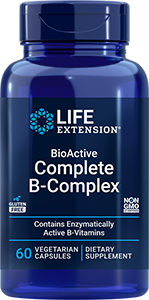|
|
|
Tuesday, January 26, 2016
The results of a meta-analysis reported in the July 2015 issue of Biomedical and Environmental Sciences add more evidence in support of a relationship between higher magnesium intake and a lower risk of developing type 2 diabetes.
Researchers at China's Nantong University selected 15 articles that reported the results of 19 prospective studies examining the effect of dietary or dietary plus supplemental magnesium on type 2 diabetes incidence among a total of 539,735 men and women. Type 2 diabetes developed in 25,252 subjects over follow-up periods that ranged from four to twenty years.
According to authors Tian Xu and colleagues, the protective effect of magnesium on diabetes is believed to be mediated through glucose homeostasis. Magnesium deficiency is thought to damage beta-cells, thereby affecting insulin production. In addition, magnesium supplementation has been shown to prevent fructose-induced insulin insensitivity. They add that intervention trials have shown that magnesium supplementation improved insulin sensitivity, and reduced insulin resistance and plasma fasting glucose levels in diabetics and nondiabetics alike.
"The present meta-analysis of prospective cohort studies further verified a protective effect of magnesium intake on type 2 diabetes in a nonlinear dose-response manner," the authors conclude. "Increasing magnesium intake especially in those with low basic level would make a beneficial contribution to control type 2 diabetes risk in general population." |
|
|
| |
 |
|
What's Hot |
|
|
|
Higher magnesium levels linked to lower risk of stroke |
|
|
|
 |
|
| |
Findings derived from the Nurses' Health Study suggest a protective effect for magnesium against the risk of ischemic stroke in women.
The study, described in the October 2014 issue of the American Heart Association journal Stroke, included 459 Nurses' Health Study participants who experienced an ischemic stroke prior to June 2006 and an equal number of control subjects matched for age, ethnicity and other factors. Blood samples collected between 1989 and 1990 were analyzed for plasma magnesium.
Subjects whose magnesium levels were among the lowest fifth of participants had a risk of stroke that was 34% higher than those whose levels were among the top fifth. Those whose levels were lower than 0.82 micromoles per liter had a 57% greater risk of total ischemic stroke, and a 66% higher risk of thrombotic stroke than women who had higher levels.
To authors Sally N. Akarolo-Anthony and her associates' knowledge, the association between magnesium levels and ischemic stroke risk has been evaluated in only one other prospective study. They remark that although only 1% of the body's magnesium exists in plasma, levels are strongly correlated with intracellular magnesium and could be a better indicator of the mineral's status than dietary intake. They note that risk factors for stroke, including diabetes and hypertension, have been associated with reduced magnesium levels, and that there is evidence that magnesium could help protect against blood clot formation.
"The results of this study suggest that low plasma magnesium may be associated with increased risk of ischemic stroke," the authors conclude. "If confirmed, our findings may have significant public health impact because magnesium deficiency is potentially modifiable."
|
|
|
| |
 |
|
Life Extension Clinical Research Update
Effects of Nutritional Supplements on Cognition, Mood, and Fatigue (CL078)
South Florida Location |
|
|
|
Life Extension is sponsoring a study to assess the effects of nutritional supplements in support of cognition, mood and fatigue in individuals with memory
complaints, an altered mood and/or feelings of fatigue within the past six months.
To qualify:
- Between 40-70 years of age
- Normal weight to overweight (BMI 18.5—29.9)
- In good health
- Experiencing memory complaints, an altered mood, and/or feelings of fatigue (within the past six months)
- Currently drinking no more than one cup of coffee a day
- Able to comply with all study procedures and visits
Qualified participants will receive at no cost:
- Study product
- Blood tests
- Blood pressure evaluations
- Up to $250 for time and travel expenses
- A $50 referral bonus is also available.*
Please call 1-866-517-4536 for further information and to see if you qualify.
https://www.lifeextension.com/clinicalresearch/ClinicalTrials.htm
*If you refer someone who enrolls in a study and completes their final visit with closeout procedures, you will be compensated the amount noted for the study. |
|
|
 |
|
Highlight |
|
| |
| — |
Life Extension Magazine® February 2016 Issue Now Online

On the cover
Shilajit boosts CoQ10 efficiency, by Jonathan Stoddard
Reports
Beauty from within: Healthy hair skin and nails, by Marcus Phillips
Slow the progression of atherosclerotic plaque, by Roger Alvarez
Prevent age-related vision loss, by Edward Rosick, DO, MPH, DABIHM
Environmental toxins and cancer risk, by Stephanie Westfall
Smoking: The leading cause of avoidable death, by Susan Cartwright
Departments
As we see it: The most sought-after anti-aging drug, by William Faloon
In the News
Wellness profile: Sandy and Stewart Levine, by Donna Caruso
Journal abstracts
CoQ10, hair, nail, and skin, arterial protection, macular degeneration, and toxins
Interactive issue
| |
|
 |
|
Health Concern
Diabetes |
|
|
Type 2 diabetes, formerly known as non-insulin-dependent diabetes, occurs when the body is no longer able to use insulin effectively and gradually becomes resistant to its effects. It is a slowly progressing disease that goes through identifiable stages. In the early stages, both insulin and glucose levels are elevated (conditions called hyperinsulinemia and hyperglycemia, respectively). In the later stages, insulin levels are reduced, and blood glucose levels are very elevated. Although few people are aware of this crucial distinction, therapy for type 2 diabetes should be tailored to the stage of the disease.
Risk factors for type 2 diabetes include aging, obesity, family history, physical inactivity, ethnicity, and impaired glucose metabolism. Type 2 diabetes is also a prominent risk of metabolic syndrome, a constellation of conditions that includes insulin resistance along with hypertension, lipid disorders, and overweight.
Diabetics are often deficient in magnesium, which is depleted by medications and the disease process (Eibl 1995; Elamin 1990; Tosiello 1996). One double-blind study suggested that magnesium supplementation enhanced blood sugar control (Rodriguez-Moran 2003).
|
|
|
| |
 |
|
Latest Products |
|
|
 |
BioActive Complete B-Complex, 60 vegetarian capsules
Item #01945
|
Daily replenishment of the B-vitamins is essential. B-vitamins are water soluble and easily washed from the body. Plus, stress, certain medications, and alcoholic beverages can quickly deplete the body's B-vitamin reserves.
Many B-vitamins function as coenzymes to help release energy from carbohydrates, fat, and protein. A deficiency of one B-vitamin can affect optimal functioning of organ systems throughout the body.
What distinguishes BioActive Complete B-Complex is that it provides enzymatically active forms of critical nutrients like the pyridoxal-5-phosphate form of vitamin B6, the active form of folate (5-MTHF) that is up to seven times more bioavailable than folic acid, and meaningful potencies of each B-vitamin.
|
 |
NitroVasc with CORDIART™, 30 vegetarian capsules
Item #01990
|
Optimal heart health depends on many factors, including proper endothelial function. Even with cholesterol/glucose levels in the healthy range, aging individuals need to maintain youthful integrity of their endothelium—the thin layer of cells lining the interior of the entire circulatory system.
CORDIART™ (extract from sweet orange peels) activates endothelial production of nitric oxide, which signals the smooth muscles to relax, inducing vasodilation to support healthy circulation. In clinical research, 500 mg of CORDIART™ alone produced an 18% improvement in flow mediated dilation, a direct marker of endothelial function. CORDIART™ also inhibited the pro-inflammatory factors C-reactive protein and serum amyloid A that interrupt healthy nitric oxide production.
CORDIART™ is a trademark of BioActor B.V. |
|
|
|
 |
|
Related Life Extension Magazine® Articles |
|
|
|
|
|
|







